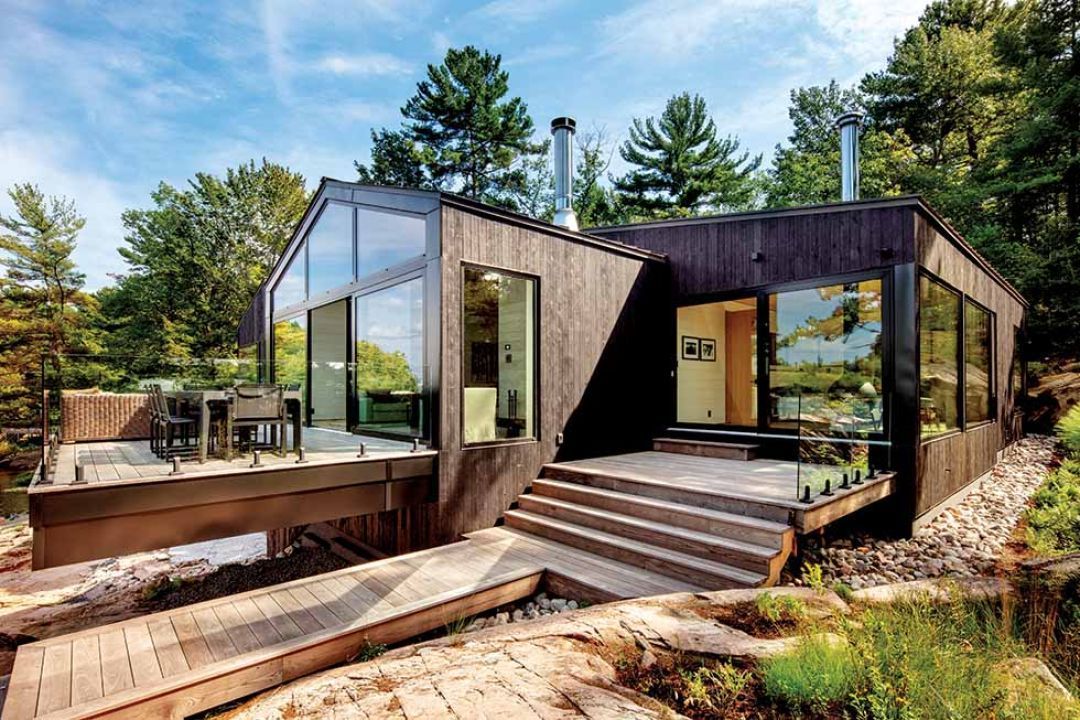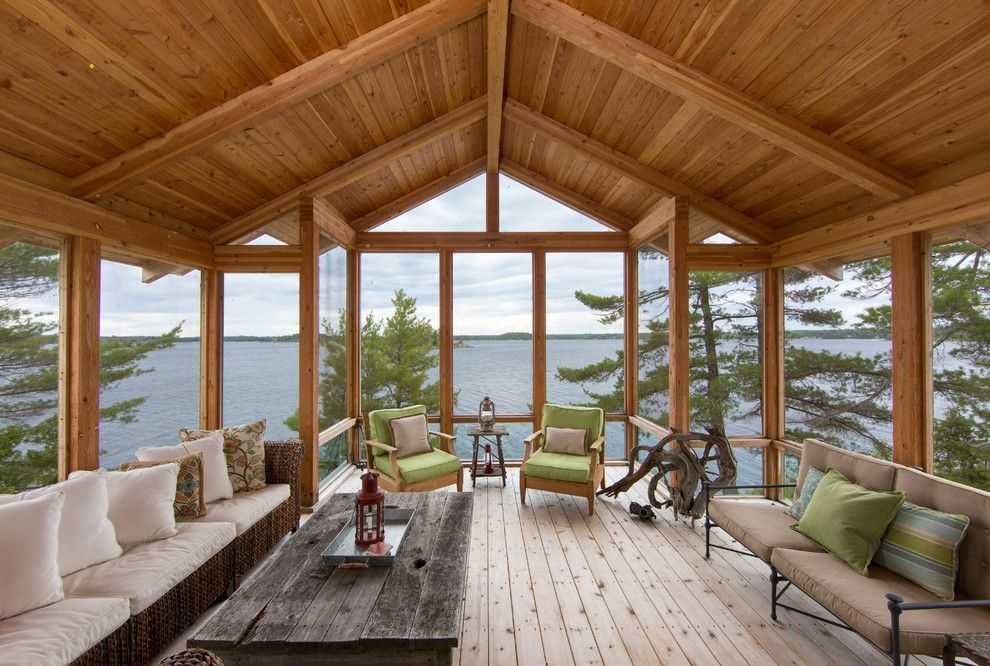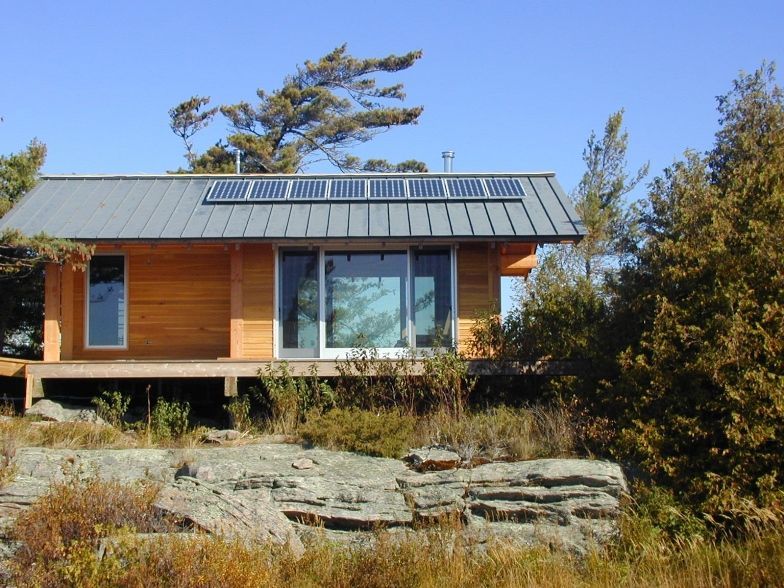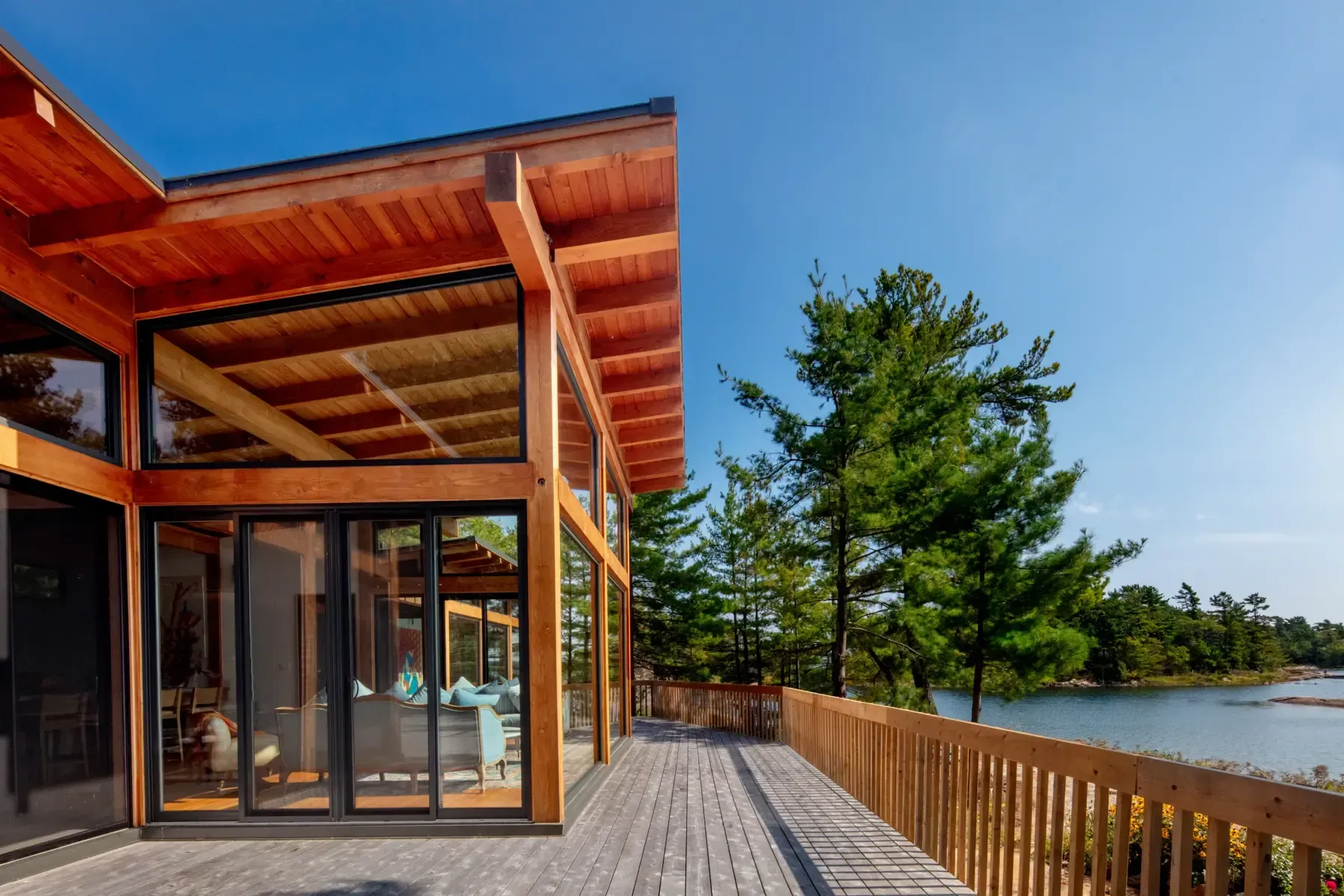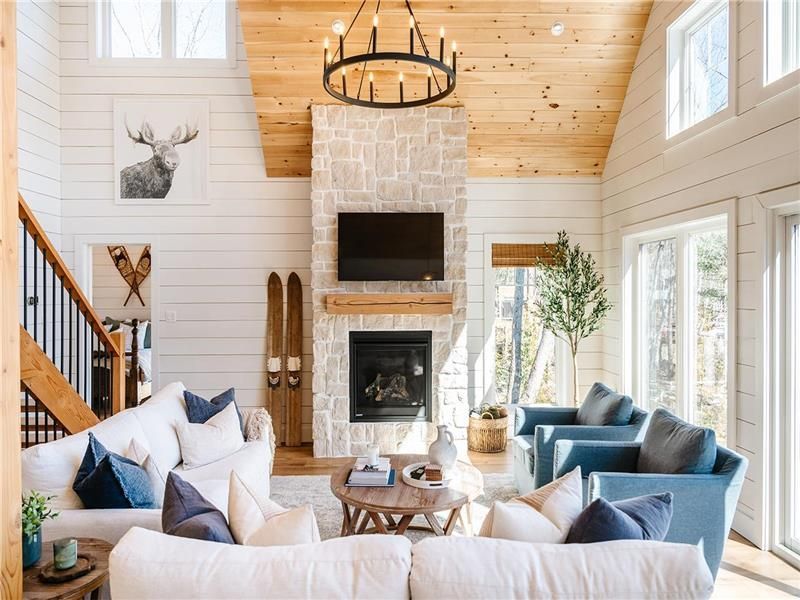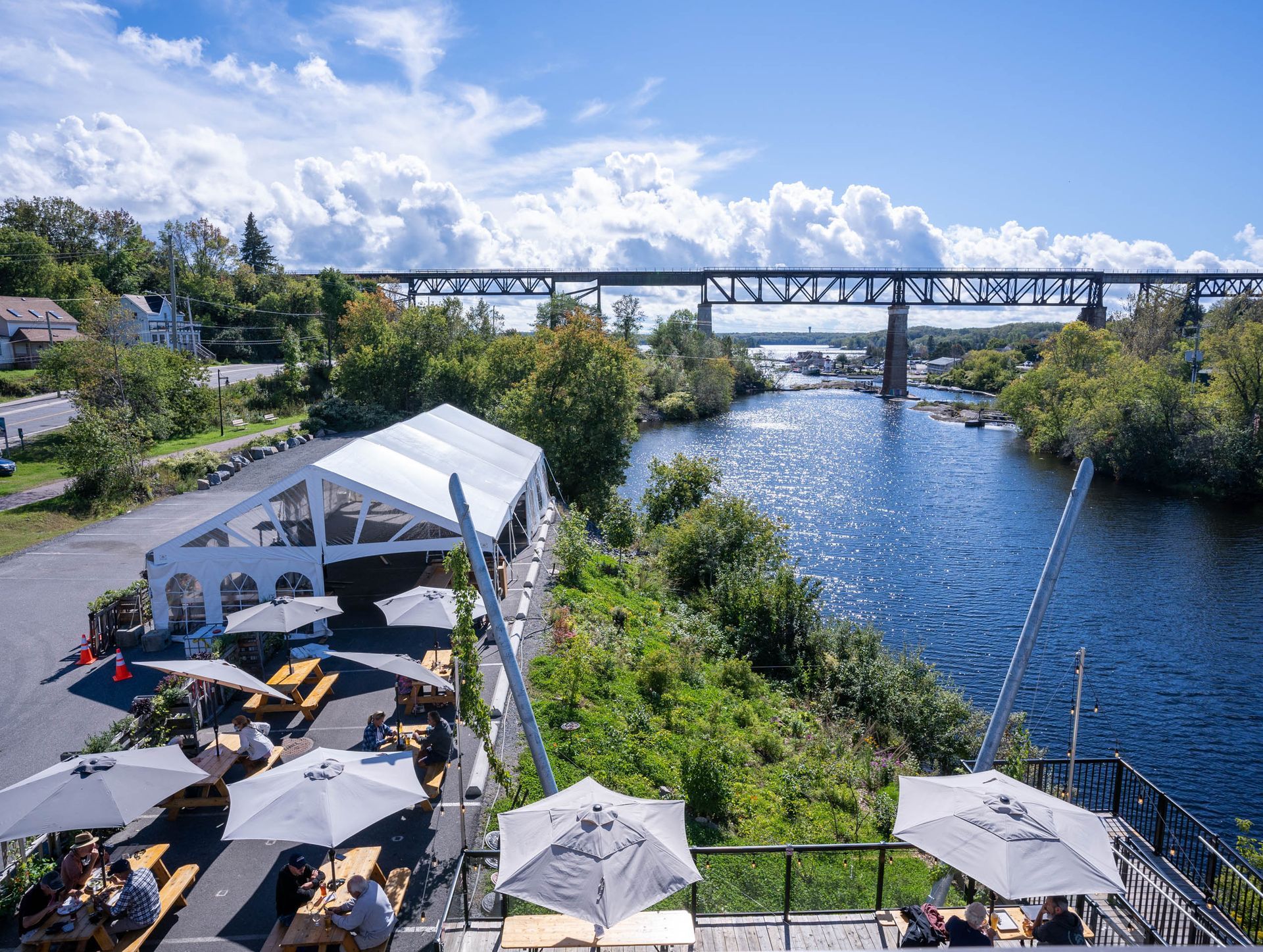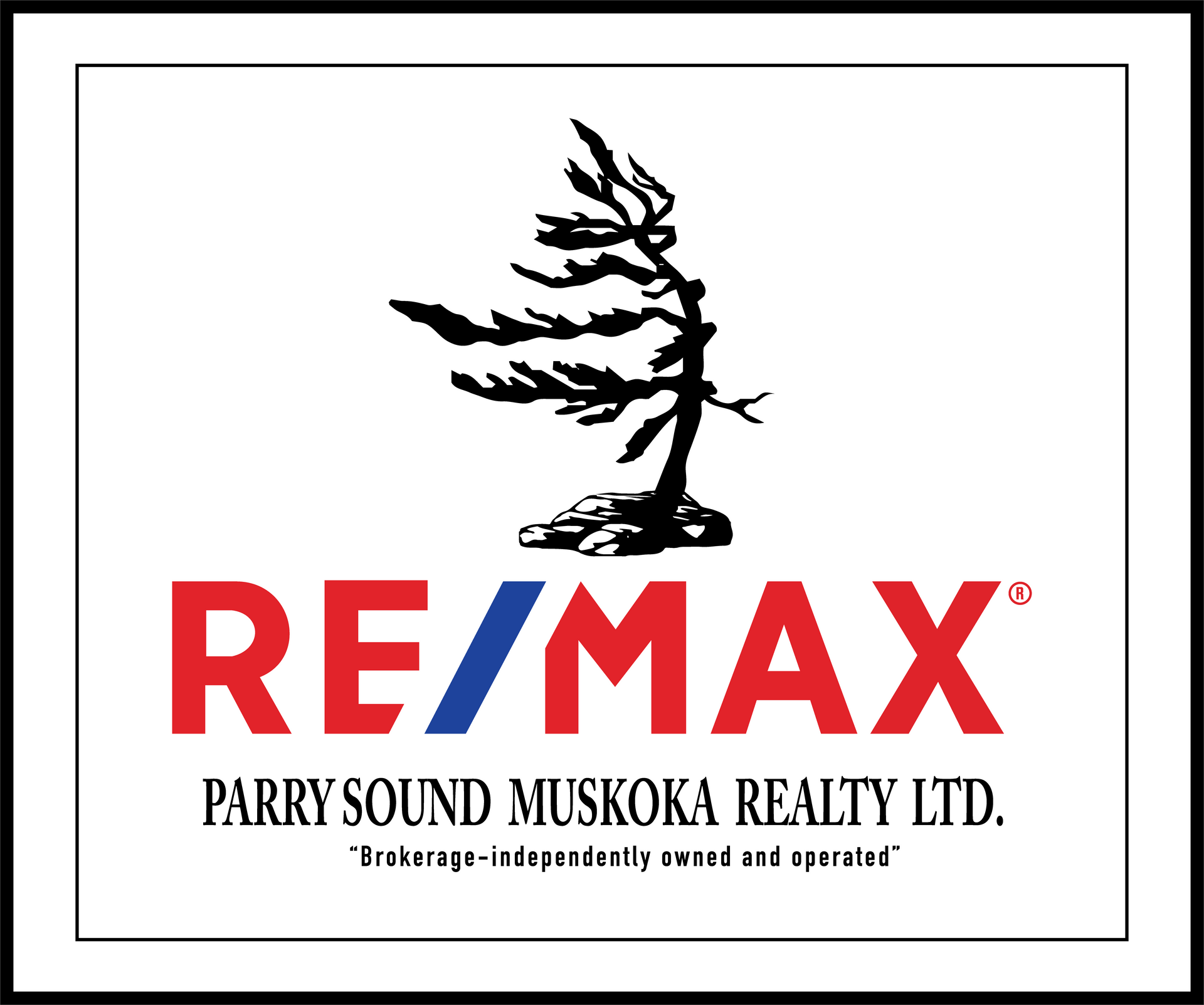Lake Water vs. Well Water: What Buyers Should Know Before Purchasing a Cottage
How lake water and well water differ—and what that means for your cottage’s property value.
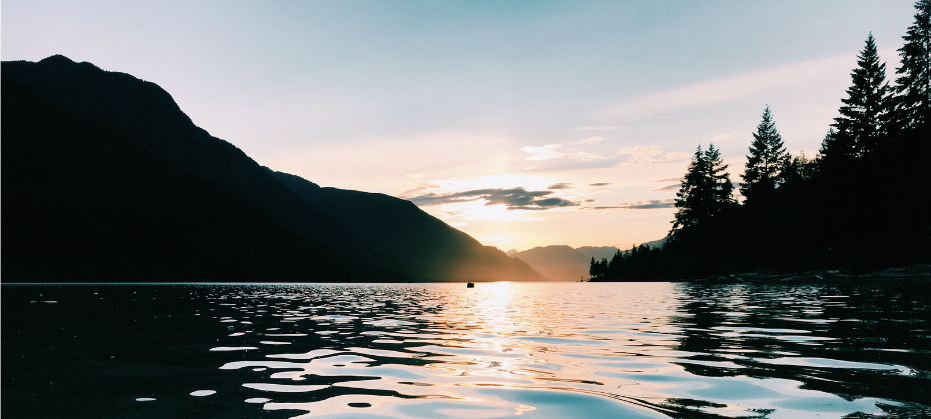
When it comes to purchasing a cottage in Muskoka, the beautiful scenery and tranquil surroundings are only part of the equation. One of the most critical yet often overlooked aspects is the type of water source that services the property. Depending on where your cottage is located, you might have access to lake water, or the property could rely on a well water system. Both options have their own benefits and challenges, and the choice between them can significantly affect your cottage experience as well as the property’s value.
In this guide, we’ll explore the key differences between lake water vs well water, how each can impact property value, and what you should consider before purchasing your dream Muskoka cottage.
Understanding Lake Water: What You Need to Know
When a cottage draws its water supply directly from a lake, there are several important factors to consider. Many Muskoka cottages are situated on the stunning shores of the area’s lakes, making lake water an accessible option for many cottage properties.
How Lake Water Systems Work
A typical lake water system involves a pump that draws water directly from the lake and filters it for use within the cottage. This water is often used for everything from drinking and cooking to bathing and laundry. However, lake water is not automatically potable (safe to drink). It generally requires treatment, which can involve filters, UV sterilization systems, or chemical treatments, depending on the quality of the lake water.
For those who enjoy spending time on the lake and want a more rustic cottage experience, using lake water can feel like a natural choice. But it’s essential to understand that the quality and safety of lake water can fluctuate based on the season, environmental conditions, and the level of treatment installed at the property.
Water Quality Considerations
One of the most important factors to keep in mind when relying on lake water is its quality. Lake water is susceptible to environmental influences, such as algae blooms, runoff from nearby properties, and animal activity. This can lead to seasonal changes in water clarity, taste, and safety. During the summer months, for example, increased recreational activity and higher temperatures can reduce water quality, requiring more intensive filtration.
Potential buyers should also be aware of the nearby land use, as farming, cottage development, or nearby industrial activity could contribute to water pollution in the lake. It’s crucial to test the lake water regularly to ensure that it’s safe for use, especially for drinking and cooking.
Seasonal Variability
Lake water systems can be affected by the seasons, particularly in areas like Muskoka that experience freezing temperatures. During the winter months, ice can make it difficult to draw water from the lake, leading many cottage owners to either close their cottages for the season or rely on a backup water supply, such as stored water tanks. This seasonal variability can make lake water less reliable for year-round use, so if you're considering a four-season cottage, this is something to think about.
Costs of Maintaining a Lake Water System
Maintaining a lake water system comes with its own set of costs. Regular water quality testing, purchasing and maintaining filtration systems, and even the cost of winterizing your pump system can add up over time. Additionally, if the lake water is not properly treated, you may face the cost of repairing or replacing appliances that become clogged with sediment or damaged by mineral buildup.
Impact on Property Value
The use of lake water can both positively and negatively impact property value. For buyers looking for a traditional, rustic cottage experience with easy access to the lake, a property that draws its water from the lake can be a major selling point. However, for others who may be concerned about water quality, the extra maintenance, or the lack of reliability in winter months, this can be seen as a drawback.
Properties with well-established lake water systems, particularly those that have high-quality filtration and water treatment setups, tend to retain or increase their value. On the other hand, cottages without proper water treatment solutions may be less attractive to buyers, which could lower the property's overall market value.
Understanding Well Water: What You Need to Know
Well water is another common water source for many cottages, especially those that are located away from lakeshores. Well water systems rely on tapping into underground water sources and can provide a more consistent supply of water year-round, but there are also several important considerations when it comes to using well water at a Muskoka cottage.
How Well Water Systems Work
A well water system draws water from underground aquifers, which are layers of water-bearing rock or soil. This water is accessed by drilling a well, and a pump system is used to bring the water into the cottage. Well water tends to be naturally filtered as it moves through the layers of soil and rock, which can improve its taste and quality compared to untreated lake water.
Once inside the cottage, the well water typically goes through additional filtration, especially if there are concerns about minerals like iron or hardness (which is common in some areas). The depth of the well can also impact the water quality and quantity, as deeper wells tend to access cleaner and more abundant water sources.
Water Quality Considerations
While well water is often cleaner and more reliable than untreated lake water, it’s not without its challenges. Wells can be susceptible to contamination from nearby septic systems, fertilizers, or other pollutants. If a property is located near agricultural land, for instance, runoff can contaminate the groundwater supply.
Regular testing of well water is crucial, especially for bacteria like E. coli, as well as other contaminants like nitrates, arsenic, or excessive minerals. In Muskoka, some wells also suffer from “hard water,” which contains a high concentration of dissolved minerals like calcium and magnesium. While these minerals aren’t harmful to health, they can cause scaling in plumbing and appliances, which may require a water softener system to address.
Seasonal Stability
One of the major benefits of using well water is its reliability throughout the year. Unlike lake water, well water is not subject to freezing in the winter or fluctuations in quality during the summer months. For those planning to use their cottage as a year-round retreat, well water can offer more consistency.
However, wells are not immune to issues. In particularly dry seasons, some wells may experience low water levels, especially shallow wells. Additionally, if the well pump fails, repairs can be costly and time-consuming.
Costs of Maintaining a Well Water System
While well water systems are generally low-maintenance, there are still some costs associated with upkeep. Testing the water quality at least once a year is recommended, and depending on the results, you may need to install or maintain filters or water softeners. The pump system may also require occasional servicing or replacement over time, and if the well runs dry or becomes contaminated, drilling a new well can be a significant expense.
Impact on Property Value
For many buyers, well water is seen as a stable, reliable source of water, and cottages with well water systems tend to have good market appeal. The fact that well water is available year-round is a big plus, particularly for those looking for a four-season cottage in Muskoka. Properties with well-maintained and deep wells often maintain or increase their property value due to the convenience and quality of the water.
That said, properties with known water quality issues—such as hard water or contamination—may see their value decrease, as potential buyers could be concerned about the ongoing costs and challenges of managing the water system.
Lake Water vs. Well Water: Key Differences and How They Impact Property Value
Now that we’ve explored how each water source works, let’s break down the key differences between lake water vs. well water and how these differences can affect your cottage investment.
Water Quality
- Lake Water: Requires more treatment to ensure it’s safe for drinking. The quality can vary with seasons, and it’s susceptible to contamination from external factors like runoff, boating activity, and algae blooms.
- Well Water: Often cleaner due to natural filtration, but still needs to be tested regularly for contaminants. Hard water and mineral content can also be a concern, requiring additional filtration systems.
Seasonal Reliability
- Lake Water: Can be less reliable during the winter months when freezing conditions limit access to the lake. Seasonal fluctuations in quality can also occur.
- Well Water: Provides year-round access and is generally more stable, though wells can run dry in very dry seasons.
Maintenance Costs
- Lake Water: Typically requires ongoing filtration, regular water quality testing, and possible winterization of the system. These costs can add up, particularly if significant treatment is needed.
- Well Water: Requires less frequent maintenance but may involve costs for testing and maintaining pumps or water softeners.
Impact on Property Value
- Lake Water: Can be a selling point for buyers who want the full lakefront experience, but without proper treatment, it may deter buyers concerned about water safety and maintenance.
- Well Water: Generally seen as a more reliable and lower-maintenance option, contributing to higher property values for year-round cottages, especially if the well is deep and provides good-quality water.
What to Consider Before Making Your Choice
If you’re in the market for a Muskoka cottage, here are some key factors to consider when choosing between a property with lake water or well water:
Your Intended Use of the Cottage
Are you looking for a seasonal retreat, or do you plan to use your cottage year-round? If your cottage is going to be a summer getaway, the potential challenges with lake water during the winter may not be a big concern. However, if you want to use your cottage year-round, a property with well water may offer more reliability, especially in the colder months.
Additionally, if your goal is to rent the property out as a vacation home, you’ll want to consider how easy it will be for guests to access clean, safe water. Well water may be more attractive to renters who don’t want to deal with potential seasonal variations in water quality or concerns about potable water.
The Property’s Water Treatment System
If you’re leaning toward a cottage with lake water, one of the most important things to examine is the quality of the existing water treatment system. Does the property have proper filtration in place? Are there additional water treatment systems, like UV sterilization or reverse osmosis, to ensure the water is safe to drink?
For well water, you’ll want to inquire about the water softening system if the area has issues with hard water. Hard water can cause mineral buildup in pipes, reduce the efficiency of appliances, and lead to higher maintenance costs. Ask the current owner how often the well water is tested and whether there have been any issues with contamination.
Water Quality and Testing History
Regardless of whether the property uses lake water or well water, it’s crucial to request recent water quality test results. You want to be certain that the water is safe for drinking, cooking, and bathing, especially if you plan to use the cottage as a family retreat or vacation rental.
In the case of lake water, ask about any historical issues with water quality, such as algae blooms or contamination. For well water, check if there have been any issues with pollutants from nearby properties or if the well has ever run dry. In both cases, it’s essential to test the water regularly, so inquire about the property’s past testing history and frequency.
Environmental Factors
Understanding the environmental factors surrounding the property is key. For lakefront properties, you’ll want to assess the health of the lake and surrounding ecosystem. Is there a lot of boat traffic? Are there other properties nearby with septic systems that could impact water quality?
For properties with well water, evaluate how close the well is to potential sources of contamination, such as septic tanks, agricultural land, or industrial sites. It’s also worth looking into the average depth of wells in the area, as deeper wells generally provide better water quality and reliability.
Long-Term Costs
Water systems come with their own long-term costs, so it’s important to factor those into your budget. Lake water properties may require more frequent maintenance and replacement of filtration systems. If you’re considering a well water system, budget for annual testing, occasional pump maintenance, and the possibility of adding a water softener if needed.
You’ll also want to think about the potential future costs of drilling a new well if the existing one runs dry. Well drilling can be expensive, so it’s essential to consider this as part of your long-term investment plan.
Resale Value
If you’re thinking about real estate investments, it’s important to consider how the water source might impact the resale value of the property. Properties with well-maintained well water systems tend to be attractive to a broader range of buyers, particularly those looking for year-round cottages.
Properties that use lake water may appeal more to buyers seeking a traditional, rustic cottage experience, but they might be a harder sell to those who are concerned about water quality, especially if there’s no high-quality filtration system in place.
Making Your Decision: Lake Water vs. Well Water for Your Muskoka Cottage
Ultimately, the decision between lake water and well water will depend on your specific needs, preferences, and long-term plans for the cottage. Both water sources have their pros and cons, and understanding how they align with your lifestyle and investment goals is critical.
Lake Water Might Be Right for You If:
- You want a traditional cottage experience where your water comes directly from the lake.
- You’re comfortable with the seasonal variability and potential maintenance involved in treating lake water.
- The property has an excellent filtration and water treatment system in place.
- You plan to use the cottage primarily in the warmer months and aren’t concerned about freezing conditions in the winter.
Well Water Might Be Right for You If:
- You’re looking for a year-round cottage with a stable, reliable water supply.
- You prefer lower-maintenance water systems that don’t require as much treatment or monitoring.
- You’re concerned about water quality and want a system that’s less susceptible to external environmental factors.
- You’re planning on renting out the cottage and want a water system that’s easy for guests to use without complications.
Conclusion: Lake Water vs. Well Water—Which is Best for Your Cottage?
Choosing between lake water and well water when purchasing a Muskoka cottage is an important decision that can impact both your enjoyment of the property and its value as an investment. Both options have their own unique benefits and challenges, and the right choice will depend on your personal preferences and how you plan to use the cottage.
If you’re ready to explore your options and find the perfect cottage with the water system that suits your needs, schedule a property consultation with Denise George today. Denise can help you navigate the Muskoka real estate market and ensure that you make a smart investment in a property that meets all your expectations.


